Richard II at the Bridge Theatre Review
How accessible is Shakespeare to younger audiences? An alternative perspective on a new production starring Jonathan Bailey
With the box office smash-hit Wicked behind global hype for the sensation that is Jonathan Bailey, it's unsurprising that the first day of on-sale would achieve record-breaking sales when he was announced to star in Shakespeare’s Richard II at the Bridge Theatre - but a few months after the star captured many hearts onscreen, can this new production live up to the hype, following the resounding success of Guys and Dolls?
The playwright's work is not the first to be staged at the riverside venue - under Artistic Director Nicholas Hytner, the Company has staged both Julius Caesar and more notably, another lauded immersive production of A Midsummer Night's Dream preceding Guys and Dolls, each using a different seating configuration thanks to the flexibility of the performance space. Its third attempt at Shakespeare explores the story of King Richard II, an arbitrary ruler whose characteristic flaws, abuse of power and the divine right of Kings led to his ultimate downfall, after being persuaded to hand over the crown to his cousin Henry Bullingbrook (Royce Pierreson).

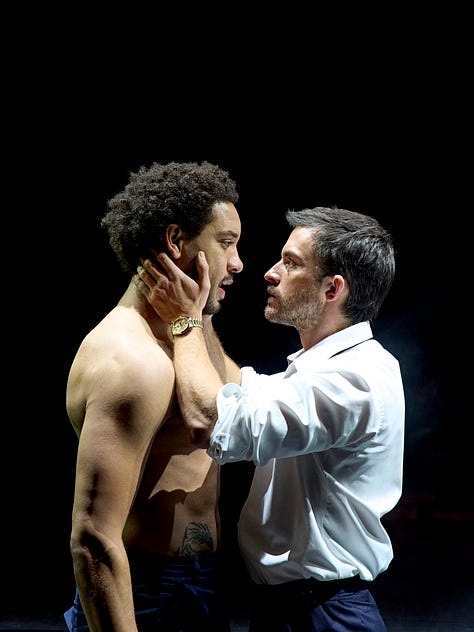
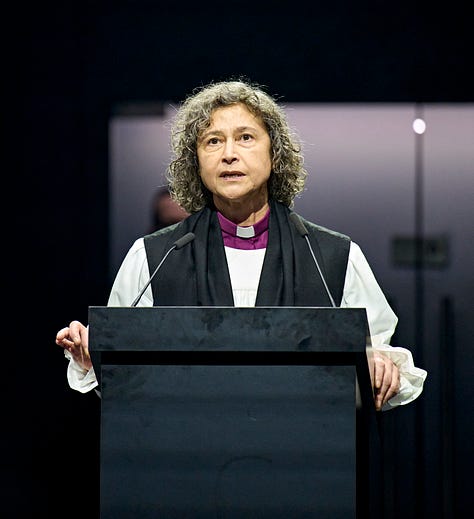
The relationships between characters often form a key barrier when initially approaching the story and accessing motives, which is where the family tree in the show's programme (not dissimilar to the one in Natasha, Pierre and the Great Comet of 1812) comes in handy. Alongside the status hierarchy, sound knowledge of the character structure also enables certain family dynamics to stand out, such as one between the Duke and Duchess of York with their son Duke of Aumerle, played by Michael Simkins, Amanda Root and Vinnie Heaven (during one scene providing comedic relief amidst the power conflict).
From flashy, commercial musicals to independent plays, theatre across both sides of the Atlantic often features star casting; sometimes the talent fits perfectly within the character brief, yet other times feel like awkward pairings. Fortunately for this production, casting Bailey in the titular role is an absolutely justifiable choice (not just speaking from a Wicked fan's perspective), lending a playfully giving personality to an indecisive monarch. His treatment of words demonstrates careful thought, injecting eclectic energy into movement and physical characterisation (with direction by James Cousins) - in some aspects not unlike Fiyero.
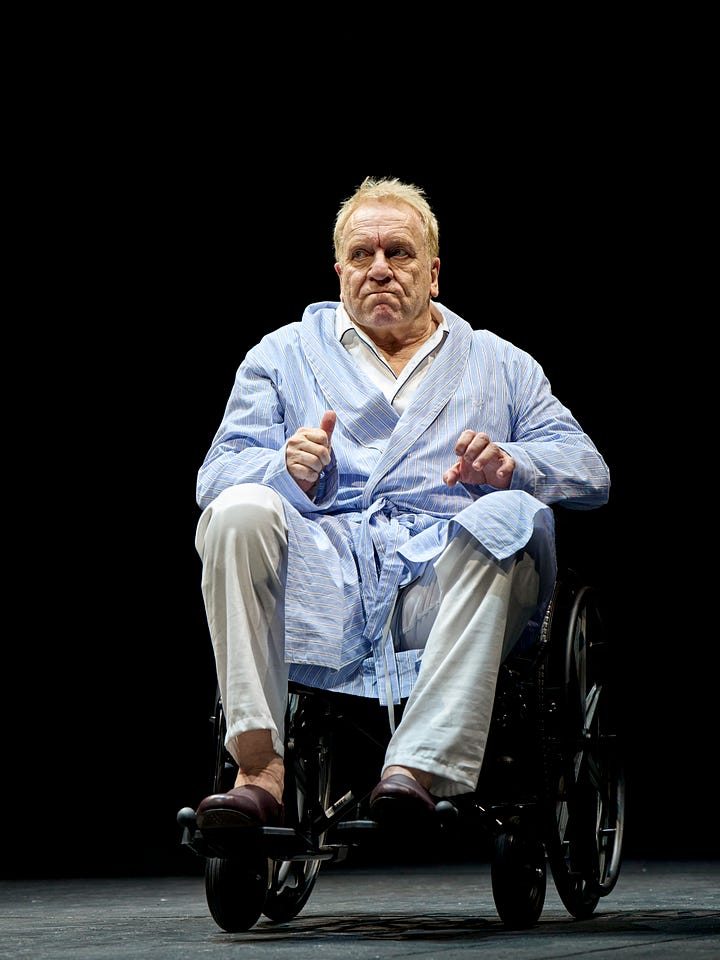
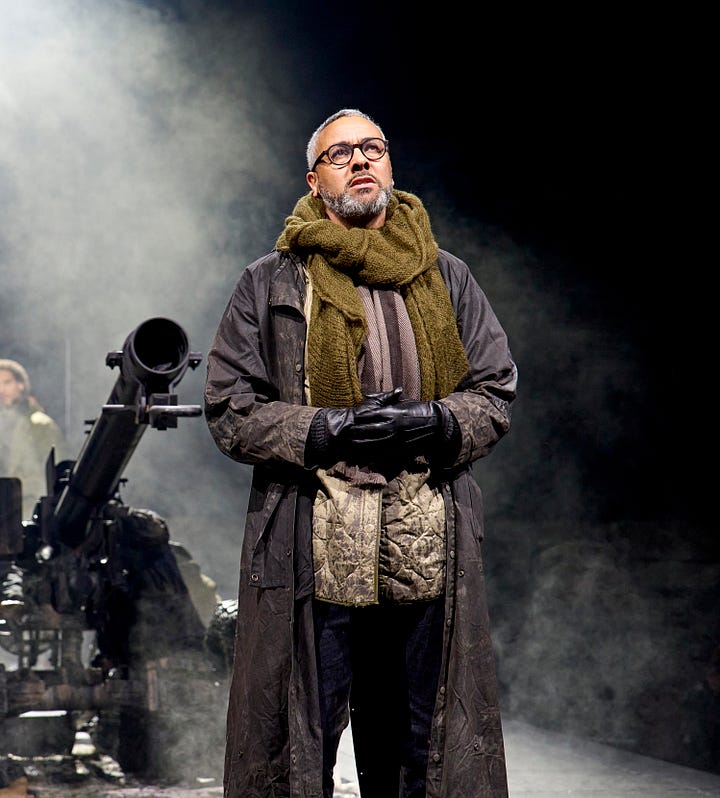
Bringing with him a calm yet assertive and indeed, magnificent voice, the delivery of each line switching from light and fluffy to deliberately passionate, through to slowed but clearly enunciated soliloquies following a change in character away from the narcissistic and self-loathing impression we initially know Richard by (having paid obvious attention to elements of the voice like inflexion and pacing), in parts also credited to Jeannette Nelson's meritorious voice work with the Company.
For avid Shakespeareans already with sound context, some having even studied it in detail, this may well be the poetic, well-crafted interpretation. But from the perspective of someone less familiar with the language, form and structure common across Shakespeare's plays, some parts of the text remain a challenge to access without thorough, pre-performance background research; though Hytner's attempt to modernise this naturalistic interpretation is evident in non-periodic costuming (at one moment seeing Bailey dressed in sweatpants and a hoodie), and a minimalistic in-the-round set utilising hydraulic platforms to preset props in slick transitions, both designed by Bob Crowley. There are refreshing takes on several locations like a modern conference room, talkback microphones and the like, increasing ease for the text to be visualised.
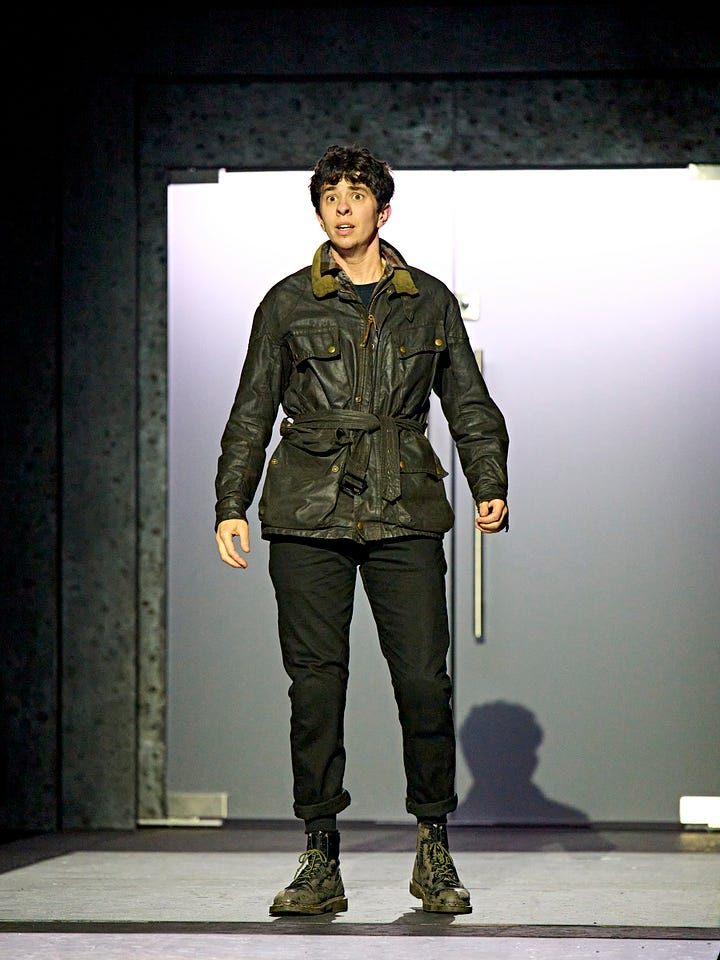
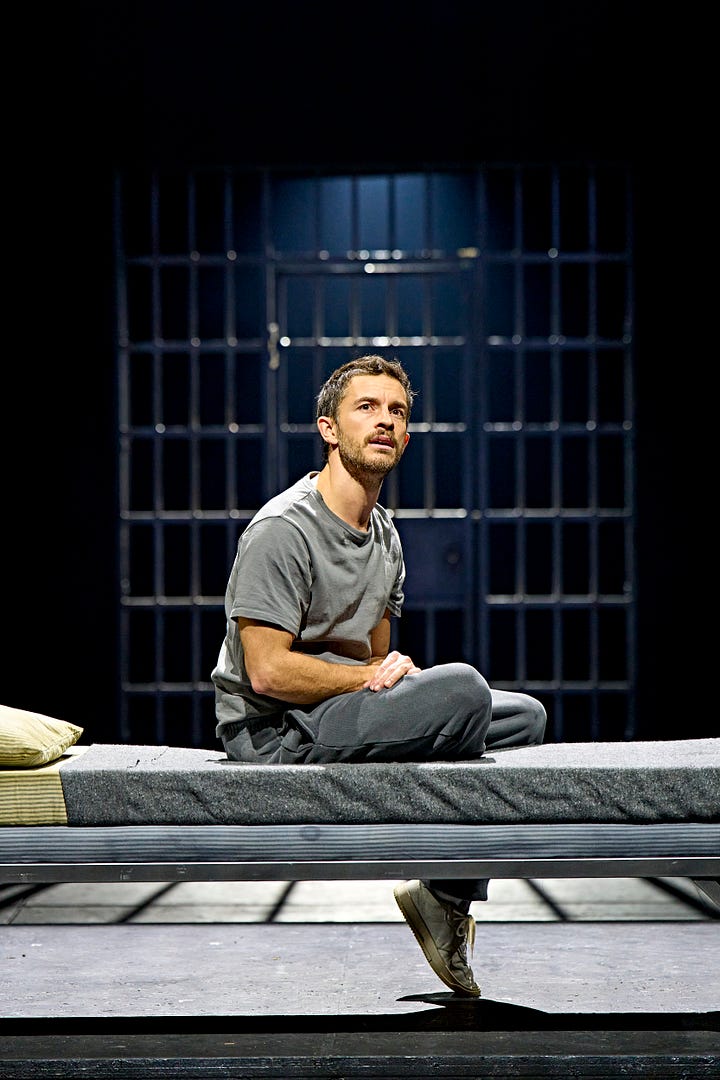
In other visual aspects, both lighting, sound design and music by Bruno Poet, Carolyn Downing and Grant Olding respectively complement the subtlety of the overall production aesthetic, featuring tense and foreboding instrumental underscoring and a healthy amount of smoke and haze (be warned, front row audiences). With the staging being in-the-round, the absence of a more elaborate set and props is understandable, but the addition of these during key scenes such as character monologues may aid understanding for audiences who may not be able to follow along with every word spoken.
Scholars suggest, as Peter Holland cites in his foreword for the show programme, that the play ‘seemed riskily contemporary rather than safely medieval'; in a younger audience's (compared to the bard himself) verdict, this iteration bleeds somewhere between the lines of this statement in that recontextualisation, to some degree, enables the audience to connect with the characters if equipped with sufficient historical background. Is that helped by a charming lead at the helm? Perhaps ticket sales, catalysed by fans of the actor can answer for itself.
★ ★ ★ ★ ☆
Richard II plays at The Bridge Theatre until 10 May. For more information and to book tickets, visit the LOVEtheatre website.
Tickets and Accessibility
🎟️ Tickets were kindly gifted by the press representatives of the show, with expectation of an honest, unbiased review. All opinions remain my own, without any input or approval from the venue or producers. Standard tickets as of time of writing are still available from £49.50. £29.50 Rush tickets are available on each performance day via the TodayTix app, with an allocation for Young Bridge members aged 16-26 available from £19.50 via a free registration.
♾️ The show features a low soundscape throughout, with loud sound effects at certain points in the show. The Company uses aisles facing all four corners of the stage throughout and often begin speaking lit from within the audience. Detailed timings are as follows (contains spoilers):






